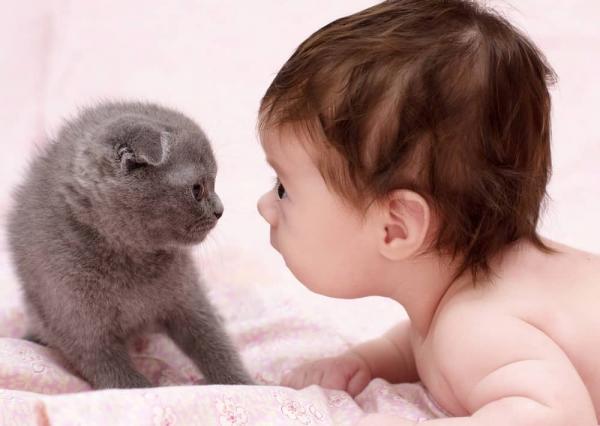
Think back on your childhood for a moment. Who was your first best friend? Your first confidante? Your first playmate? For some people it was a sibling, a neighbor or someone from school, but many others might mention a different name: Fido.
That's right, I'm talking about a pet!
And it's not surprising, according to Gail F. Melson, PhD and professor emeritus of developmental studies at Purdue University. Melson estimated that "4 in 10 children begin life in a family with domestic animals, and as many as 90 percent of all kids live with a pet at some point during childhood." In many families, pets are far more than playthings or passing amusements. They are full-fledged members of the family, and research shows there are a number of physical, social and psychological benefits to having a furry friend around the house.
A lower risk of asthma and eczema
Did you know that pets can actually help prevent children from developing animal allergies or asthma? In 2012, Oprah interviewed Dr. Oz who explained, "People with allergies produce antibodies which can cause inflammation in the airways (asthma) or the skin (eczema)... But exposure to a pet during infancy may mean less chance of developing such reactions in adulthood." Scientists hypothesize that early exposure helps desensitize children to allergens, even prenatally. Dr. Oz mentioned a study claiming that "prenatal pet exposure lowers allergic antibody production in the umbilical cord." A pet can provide benefits before a child is even born!
An educational de-stressor
Pets have also been shown to have positive effects on a child's ability to learn. Mary Renck Jalongo, PhD, education professor at Indiana University of Pennsylvania, cited a study which monitored children when they were asked to read to an adult, a peer and a dog. Researchers noted elevated stress levels when children read to humans as compared to the dog - which makes sense because, after all, what could be less intimidating or judgmental than a happy, tail-wagging dog? There's a reason why dogs are often used as therapy animals for children. When children begin to feel nervous or overwhelmed, they're able to turn to their canine companions for comfort.
Better overall fitness
Exercise is more fun when you're doing it with a friend - two-legged or four-legged! The Journal of Physical Activity & Health published a study in 2011 which found that "dog owners were 34 percent more likely to complete the recommended minimum amount of exercise per week." Think about it - all the extra walks you go on, the time you spend playing with your pet, even pet cleanup contributes to your exercise.
More chances to practice nurturing
Pets might be the first living things children learn to take care of besides themselves. The responsibility of feeding, washing and cleaning up after a pet helps kids develop their ability to nurture and love. Even kids who already care for younger siblings can benefit. As part of her research, Dr. Melson studied the amount of time kids spent actively caring for a younger sibling and compared it with the time they spent actively caring for a pet. She found that, "over a 24-hour period, pet-owning kids spent 10.3 minutes in caregiving; those with younger sibs spent only 2.4 minutes." As children age, more of the daily tasks of pet care can be delegated to them, providing them with more opportunities to learn and grow. (For more on teaching children responsibility, click here.)
Having a pet does come with added expense and sometimes inconvenience, but it's hard to measure that against the benefits you and your children get in return. Besides learning responsibility and getting better exercise, having a pet around provides family bonding moments you can't get any other way - and families can always use a little more love. (Click here for more lessons you can pass on to your children.)

